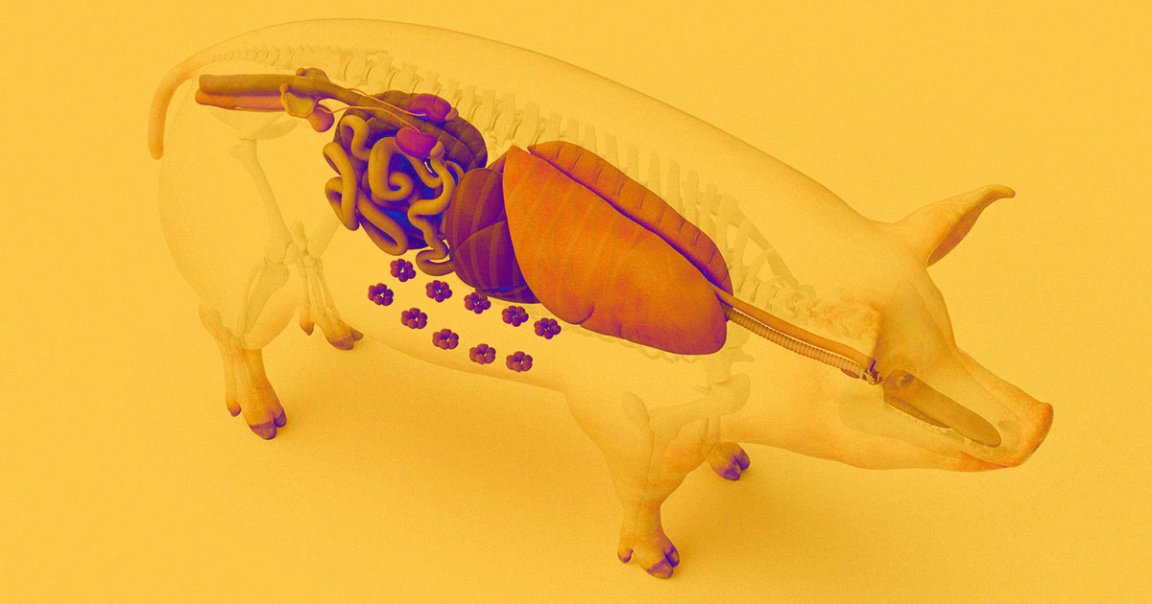
For the first time in history, scientists in China have transplanted a lung from a genetically modified pig into a human patient.
As detailed in a paper published in the journal Nature, the team of researchers transplanted the lung into the body of a 39-year-old male who had previously been declared brain-dead, in May of last year at the First Affiliated Hospital of Guangzhou Medical University.
The news comes after scientists in the United States successfully transplanted a gene-hacked pig kidney, allowing a patient to live for roughly two months last year.
Researchers have also transplanted pig hearts and livers into humans.
Unfortunately, the latest procedure didn’t go perfectly. The brain-dead patient received a regimen of immunosuppressive drugs to ensure his body wasn’t rejecting the new organ — one of the biggest challenges facing doctors when it comes to xenotransplantation, or transplanting organs from a different species into a human.
Around 24 hours after the surgery, the body began producing white blood cells that invaded the pig lung. Over the following days, the body began rejecting the lung, and on day nine, the recipient’s family asked for the experiment to be shut down.
While experts are cautiously optimistic that lungs could eventually allow us to address severe donor organ shortages, some warn that a lot more research needs to be done.
“It’s not ready for prime time,” University of Toronto professor of thoracic surgery Shaf Keshavjee, who was not involved in the research, told STAT. “Importantly, they’ve shown us we’re not there yet; don’t go trying this on a patient because it ain’t going to work.”
Nonetheless, scientists are hopeful that xenotransplantation could eventually allow us to lower our dependence on human donor organs, which are in extremely short supply.
In the latest experiment, Chinese researchers used the lung from a pig, whose genes were edited using the breakthrough gene-editing technique of CRISPR.
The study was primarily designed to determine whether the human body would reject the lung. The human patient’s right lung was left in the body, which means that it’s impossible to tell whether the pig lung would’ve represented a life-saving intervention.
“For our team, this accomplishment is a meaningful beginning,” Guangzhou Medical University physician and coauthor Jiang Shi told STAT. “Lung xenotransplantation presents unique biological and technical challenges compared to other organs. Our aim is to create a rigorous scientific pathway toward a safe, durable lung xenograft, not to claim clinical readiness today.”
Other experts also remain hopeful, with Luhan Yang, a cofounder of major US-based xenotransplantation company eGenesis, calling it an “insightful study,” telling STAT that it “offers significant contributions to understanding immune responses toward xenograft lungs.”
More on xenotransplantation: Patient Dies After Receiving Kidney From Gene-Hacked Pig